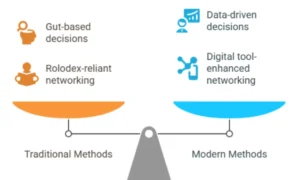It’s no longer news that commercial property loan deposits have become an integral part of commercial real estate deals.
To this end, investors and developers must have a consistent source they can depend on to raise soft deposits when they are low on cash.
There are many options to explore, each with its pros and cons. We examine these options below:
-
Traditional bank loans
You can pay for soft deposits through short-term loans from banks and credit unions.
Pros
- Competitive interest rates: Banks will often offer lower rates than non-bank financial institutions. However, rates can become expensive for short-term loans like soft deposits.
- Trust: Banks are well-regulated, and many investors trust them.
Cons
- Stringent requirements: Banks usually have strict eligibility criteria that include high credit scores, collateral, and large business cash flows. This makes it difficult to qualify for bank loans.
- Lengthy approval process: The application process can be quite tedious, with many back-and-forths between the borrower and the bank.
-
SBA loans
These are government-backed loans provided by the Small Business Administration (SBA) to support small businesses.
SBA 7(a) and SBA 504 are the two common types of SBA loans that CRE investors and developers can apply for. The former requires collateral while the latter does not.
Pros
- Lower interest rates: Since they are backed by the government, these loans can be cheaper than what other financial institutions can offer.
Cons
- Lengthy approval process: The approval process can be very slow and tiring.
- Limited accessibility: Small businesses taking this loan must show that they are steady enough to repay the loan and that doing so won’t harm their finances. Also, the SBA 7a loan requires collateral.
-
P2P lenders
These are online platforms that connect borrowers with lenders. The platform will usually set the interest rates and loan terms based on the borrower’s credit profile.
Lenders can go through the list of approved requests and fund the borrower they are comfortable with.
Pros
- Quick access to funds: The entire process is fast and flexible.
- Greater accessibility: Borrowers with moderate credit are still more likely to find lenders who are willing to lend them money.
Cons
- Higher interest rates: Greater accessibility will often come at the cost of higher interest rates.
- Limited amounts: P2P platforms may not be appropriate for developers and investors who need large amounts for soft deposits.
-
Real estate investment groups
These are groups of investors and developers who pool resources to fund various ventures embarked on by members.
Unlike P2P platforms, real estate investment groups bring together like-minded professionals who support each other in other ways apart from financing.
Pros
- Possibility of lower interest rates: Depending on the nature of the relationship, it is possible to get better rates from group members.
- Possibility of quick access: When the funds are readily available and the relationship is good, quick access to funds is possible.
Cons
- Uncertainty: There is no guarantee that an investor will find a willing lender. Even if they find one, there is no guarantee of lower interest rates or quick access.
- Damaged relationships: Borrowing money from people one knows personally can affect the relationship negatively if things turn sour.
New digital finance solutions
Fintech platforms and other private lenders are creating financing solutions that target soft deposits specifically.
They use a financing structure that makes collateral and credit checks unnecessary. The company creates an LLC that will transfer the funds to an escrow and sign the PSA. If the investor repays, they get a 100% right to the LLC.
However, if the deal does not go through, the company gets the money back from the escrow, and the investor only loses the financing fee that was paid up front.
Pros
- Fast approval and disbursal: Some platforms will make money available to the escrow within 48 hours.
- Greater accessibility: No credit check or collateral required.
Cons
- Multiple fees: Some platforms charge multiple fees that usually add up, making the deal expensive.
Duckfund is a leading soft deposit financing company in the US. You can complete an application in 2 minutes and get the funds transferred to an escrow within 48 hours.
Also, Duckfund only charges a single financing fee (no multiple fees). This fee is a low standard rate per 30 days, with discounts applied at the 4th month.
If you operate in a competitive market, Duckfund will help you offer higher soft deposit amounts to gain an advantage. What is more? You can work on multiple simultaneous deals, and Duckfund will fund them all.
With Duckfund, you can grow your CRE portfolio without ever worrying about soft deposits again.



































